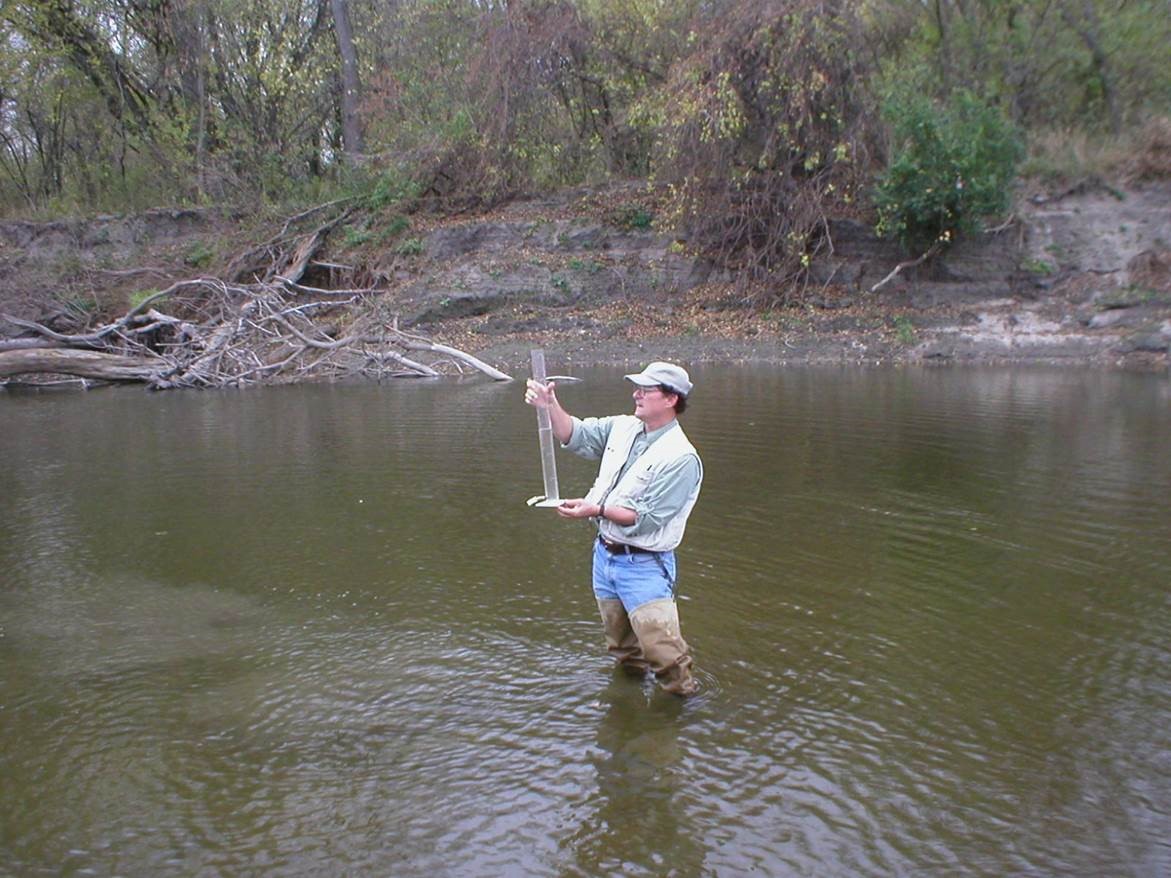Speak Out for the Clean Water Act: Rollback Threatens Health of Iowa's Water and Wildlife
posted
on Thursday, August 17, 2017
Written by Clare Kernek, IEC Water Program Attorney and Ann Robinson, IEC Agriculture Policy Director.
The future health of Iowa’s waters is at risk due to a proposed rollback of Clean Water Act protections for small and headwater streams and for many wetlands.
(1).jpg) |
| Mike Delaney and his dog, Lucy. |
“This past weekend,” says Mike Delaney, a professor who helped found Iowa’s Raccoon River Watershed Association and an Izaak Walton League chapter, “I paddled the North Raccoon River in Dallas County. I was embarrassed by the condition of the river that I have been working for 11 years to protect and improve. The river looked and smelled like hog manure. My dog has been developing eye infections after brief dips. I cannot recommend getting in the river if one has open cuts. Youngsters have been tubing down the Raccoon more than ever this year -- they should be told about the dangers of contact with a stream that is impaired because of bacteria levels. What a shame.”
“So, now, the federal government wants to allow more pollution of our waters by claiming that small tributaries are not connected to our rivers and lakes,” continues Delaney. “They also want to remove more wetlands from protection. The best hope we have for nitrate reduction is our wetlands. We need more functioning wetlands, not fewer.”
 |
| Mike Delaney, Raccoon River Watershed Association. |
Delaney’s concerns refer to the Administration’s proposed repeal of the 2015 Clean Water Rule, often known as Waters of the United States (WOTUS). If you share these concerns about the health of our waters and our children, it is critical to speak up – as the rollback is widely supported by ag groups, developers and politicians. Comments on the changes to repeal the Clean Water Rule are due September 27. You can comment now!
The Clean Water Act’s protections do not extend to all water bodies—only to those defined as “Waters of the United States.” For 30 years, the small, often seasonal streams that flow into larger, “navigable” rivers were assumed to be included in this definition by agencies administering the Act. However, this understanding was cast into doubt by a 2006 Supreme Court case in which the Court could reach no majority opinion over whether, and when, the CWA applied to smaller tributaries that are so important for drinking water sources and wildlife habitat.
The legal uncertainty created by the divided Court created confusion and made enforcement difficult. In 2015, the EPA sought to remedy the situation. After years of research and months of citizen input, the agency issued a final rule that clarified which water bodies are included in the definition of “Waters of the United States.” This Clean Water Rule restored the Clean Water Act’s protections to tributary streams and wetlands that have a clear connection to our nation’s rivers.
Today, the EPA is proposing to rescind the 2015 rule and replace it with an alternative definition based on an unprecedented, narrow reading of the Clean Water Act’s protections for tributary streams and wetlands. The Iowa Environmental Council and many other environmental and conservation interests are fighting the rollback, which not only threatens water quality and fisheries but is also likely to increase flooding.
Your voice is needed NOW to protect the Clean Water Act and the future of Iowa waters! The Council is working with our partner, the Mississippi River Network (MRN), to make it easy for citizens to comment. You can respond to the MRN “Repel the Repeal” action alert.
For more information:
KCCI Des Moines "Close Up" featuring EPA Administrator Scott Pruitt and IEC Executive Director Ralph Rosenberg.
You can find the complete notice about the proposed repeal in the Federal Register.
Read a brief explanation of the Clean Water Rule.